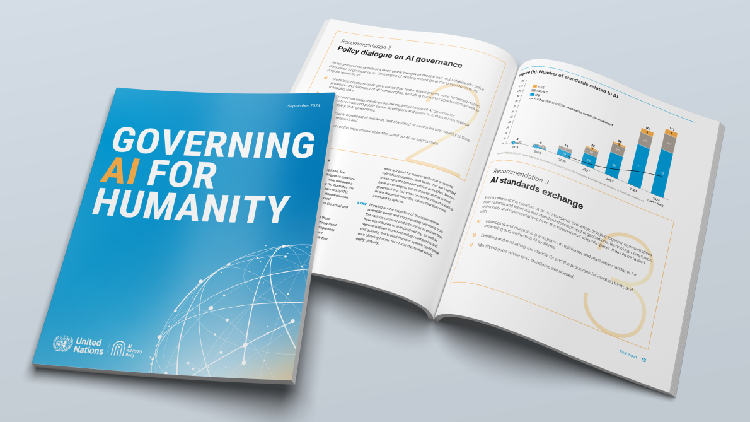UN Issues Report on Worldwide AI Governance
The United Nations has published a report addressing the governance of artificial intelligence worldwide. The document highlights key considerations and recommendations for effective AI regulation and oversight on a global scale.

Entitled "Governing AI for Humanity," the report presents a framework designed to ensure that the development and deployment of AI align with human rights, ethical standards, and sustainable development goals.
In the previous year, the UN established a 39-member advisory group to tackle international governance issues related to AI. Discussions surrounding these recommendations are set to take place during a UN summit later this month.
In a video message that accompanied the release of the report, UN Secretary-General Antonio Guterres highlighted the document's importance, stating, "This report is not an end but a key milestone in our ongoing work to ensure that artificial intelligence serves the common good and benefits humanity."
The report advocates for a multi-stakeholder approach that includes governments, the private sector, civil society, and international organizations, to establish a global AI governance framework that is inclusive, transparent, and accountable. It underscores the necessity of international collaboration in setting standards and norms for AI and emphasizes the need for strong mechanisms to tackle challenges such as bias, privacy, and the potential displacement of jobs.
Further recommendations include initiating a new policy dialogue on AI governance, establishing an AI standards exchange, and creating a global AI capacity development network to enhance governance capabilities.
One of the key proposals is the establishment of a global AI fund to bridge gaps in capacity and collaboration. Additionally, the report advocates for a global AI data framework to promote transparency and accountability.
The UN noted the risks associated with the concentration of AI development in the hands of a few multinational corporations, warning that this could lead to a situation where individuals have no input on how the technology is utilized.
Lastly, the report suggests the creation of a small AI office dedicated to supporting and coordinating the implementation of these recommendations.
Olivia Brown contributed to this report for TROIB News
Discover more Science and Technology news updates in TROIB Sci-Tech












